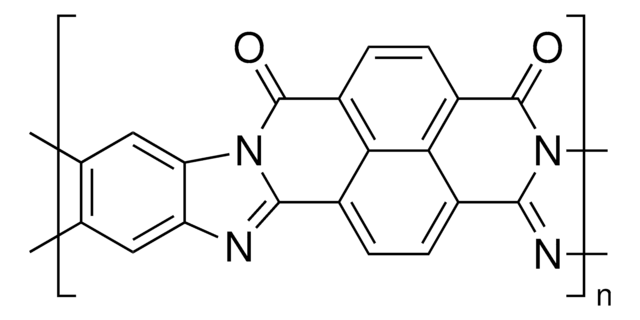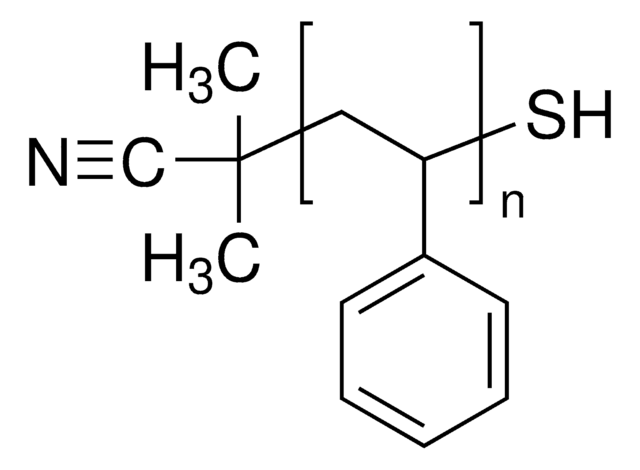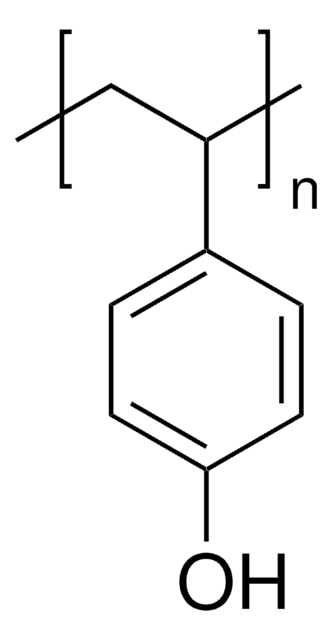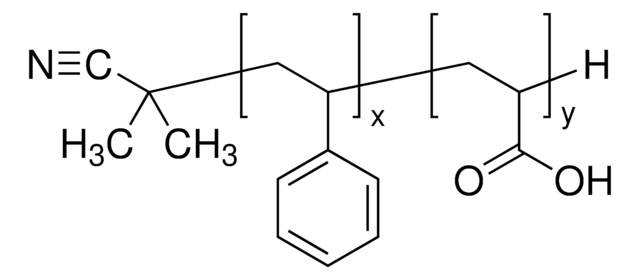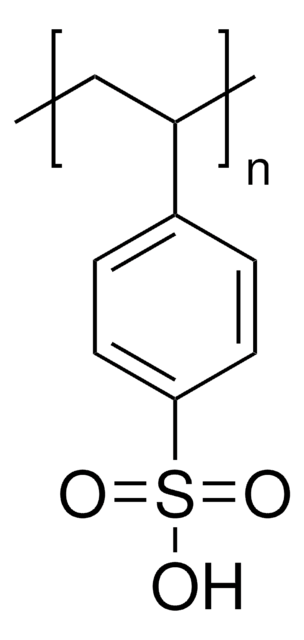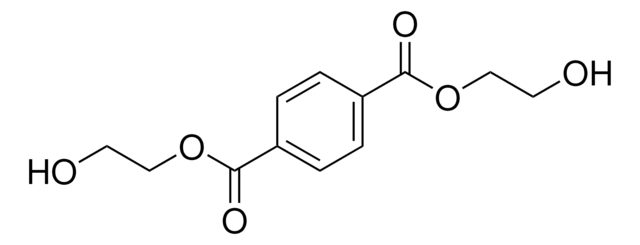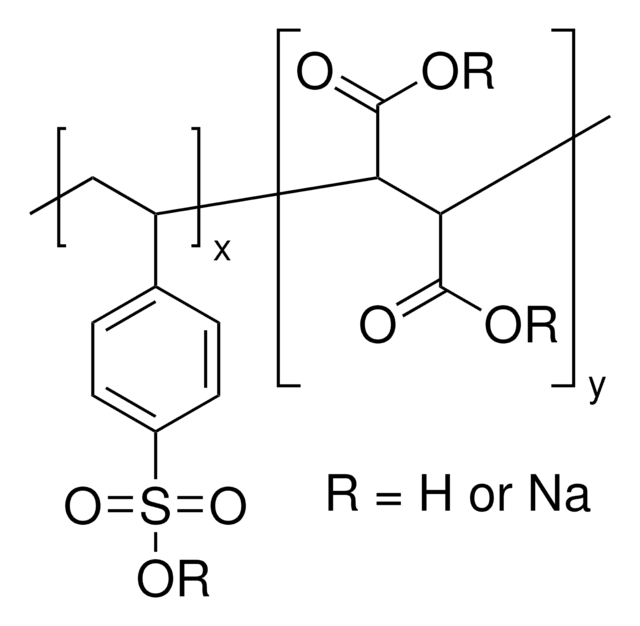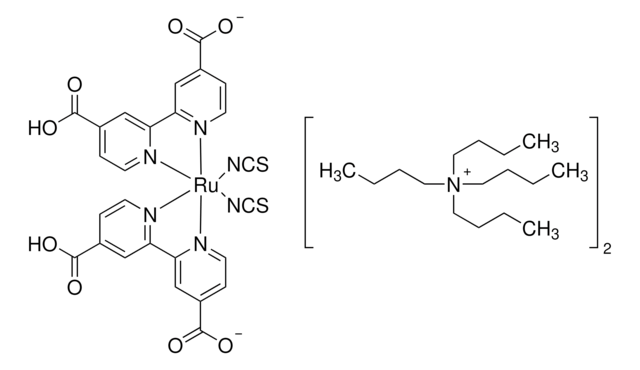746983
Poly(styrene)-block-poly(acrylic acid)
average Mn 38,000, 20 wt. % PAA, PDI ≤1.3
About This Item
Productos recomendados
form
powder
mol wt
Mn 27,000-33,000 (polystyrene)
Mn 34,000-42,000 (total)
Mn 7,000-9,000 (poly(acrylic acid))
average Mn 38,000
PDI
≤1.3
¿Está buscando productos similares? Visita Guía de comparación de productos
Application
Legal Information
Sold for research purposes only. Not for use in humans. Before opening or using this product, please read the following terms and conditions. Use of this product shall constitute acknowledgement and acceptance of these terms and conditions.
Use of this product may be covered by one or more of the following US patents and corresponding claims outside the US: 7,714,075; 7,250,479; 7,666,962; 6,642,318; 6,747,111, and pending applications (W2010/8356). For details contact Aldrich Chemical Company, Inc.
signalword
Warning
hcodes
Hazard Classifications
Eye Irrit. 2 - Skin Irrit. 2 - STOT SE 3
target_organs
Respiratory system
Storage Class
11 - Combustible Solids
wgk_germany
WGK 3
flash_point_f
Not applicable
flash_point_c
Not applicable
Elija entre una de las versiones más recientes:
Certificados de análisis (COA)
¿No ve la versión correcta?
Si necesita una versión concreta, puede buscar un certificado específico por el número de lote.
¿Ya tiene este producto?
Encuentre la documentación para los productos que ha comprado recientemente en la Biblioteca de documentos.
Artículos
Reversible addition–fragmentation chain transfer (RAFT) polymerization is rapidly moving to the forefront in construction of drug and gene delivery vehicles.
The development of drugs that target specific locations within the human body remains one of the greatest challenges in biomedicine today.
Over the past two decades, the rapid advance of controlled living polymerization (CLP) techniques.
Wide range of functional polymers for biomedical applications have been synthesized and structurally characterized. Several classes of polymers including biodegradable polymers, hydrophilic & amphiphilic polymers, and stimuli responsive polymers have been prepared using controlled and directed functionalization via "living" polymerization such as RAFT, ionic and ring opening polymerization. Selected polymers have been studied for their structure-properties relationship. "
Nuestro equipo de científicos tiene experiencia en todas las áreas de investigación: Ciencias de la vida, Ciencia de los materiales, Síntesis química, Cromatografía, Analítica y muchas otras.
Póngase en contacto con el Servicio técnico
